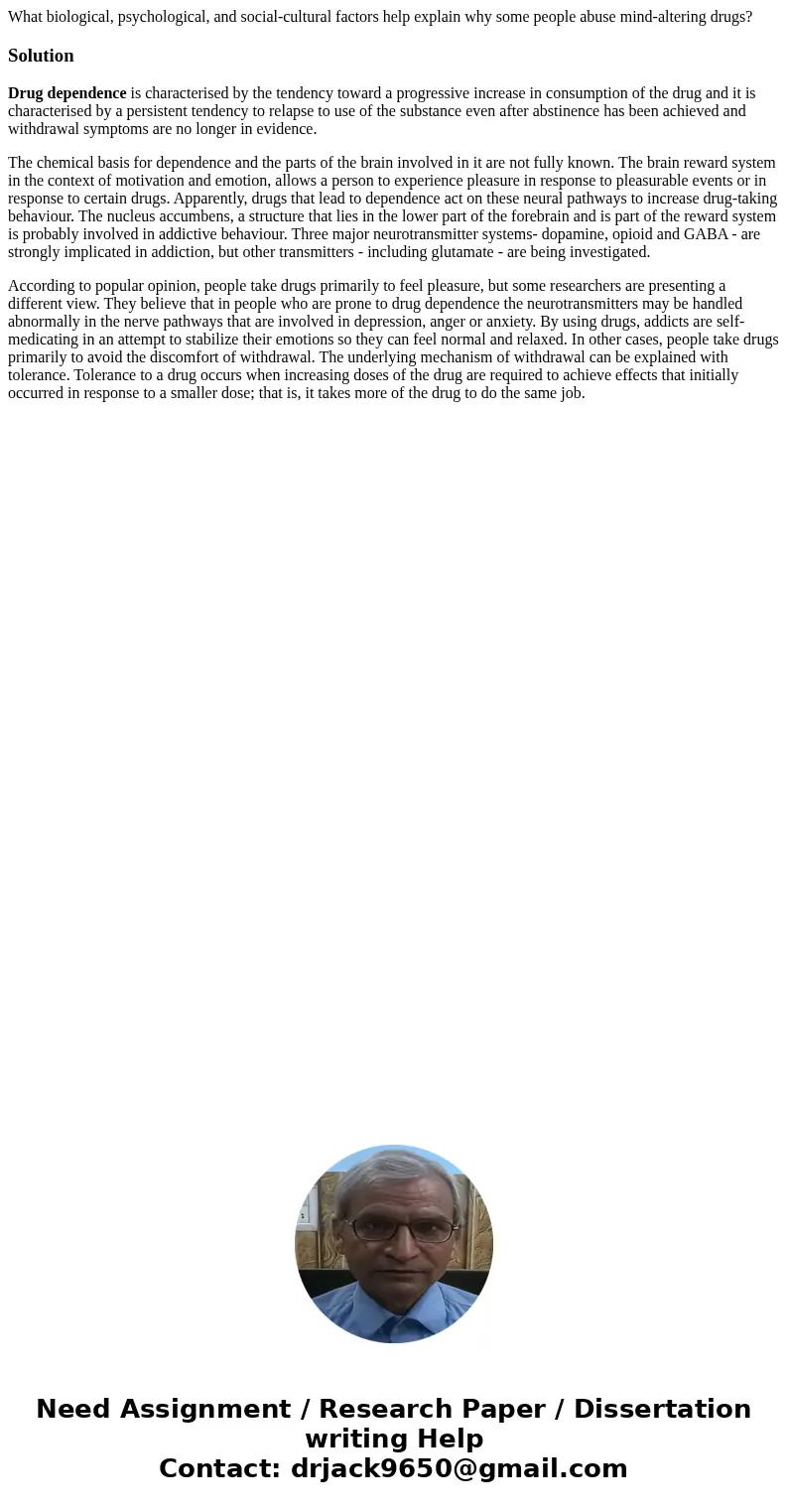What biological psychological and socialcultural factors hel
What biological, psychological, and social-cultural factors help explain why some people abuse mind-altering drugs?
Solution
Drug dependence is characterised by the tendency toward a progressive increase in consumption of the drug and it is characterised by a persistent tendency to relapse to use of the substance even after abstinence has been achieved and withdrawal symptoms are no longer in evidence.
The chemical basis for dependence and the parts of the brain involved in it are not fully known. The brain reward system in the context of motivation and emotion, allows a person to experience pleasure in response to pleasurable events or in response to certain drugs. Apparently, drugs that lead to dependence act on these neural pathways to increase drug-taking behaviour. The nucleus accumbens, a structure that lies in the lower part of the forebrain and is part of the reward system is probably involved in addictive behaviour. Three major neurotransmitter systems- dopamine, opioid and GABA - are strongly implicated in addiction, but other transmitters - including glutamate - are being investigated.
According to popular opinion, people take drugs primarily to feel pleasure, but some researchers are presenting a different view. They believe that in people who are prone to drug dependence the neurotransmitters may be handled abnormally in the nerve pathways that are involved in depression, anger or anxiety. By using drugs, addicts are self-medicating in an attempt to stabilize their emotions so they can feel normal and relaxed. In other cases, people take drugs primarily to avoid the discomfort of withdrawal. The underlying mechanism of withdrawal can be explained with tolerance. Tolerance to a drug occurs when increasing doses of the drug are required to achieve effects that initially occurred in response to a smaller dose; that is, it takes more of the drug to do the same job.

 Homework Sourse
Homework Sourse